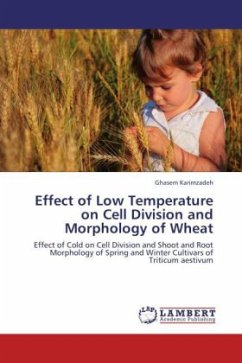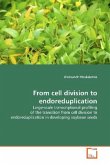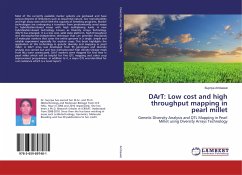The effect of low temperature on the cellular behavior of roots and shoots of Triticum aestivum cv. Katepwa (spring; sw) and cv. Beaver (winter; ww) was studied. To distinguish cellular responses, parallel measurements were carried out on embryogenic callus. Seedlings were grown either at 20ºC (control treatment), or at 20ºC followed by transfer to 4ºC for 14 d and then returned to 20ºC (cold treatment). The growth response of both cultivars was reduced at 4ºC but the shoot meristem of ww at 4ºC exhibited a faster relative growth rate and a shorter tissue doubling time than sw. This suggests that vernalization stimulates cell division in the shoot meristem. Interphase cells in the root meristem of both cultivars/treatments were smaller but had larger nuclei than those in the callus. More cells accumulated in G1 at 4ºC in ww than at 20ºC. In vitro and, to a lesser extent in vivo, the majority of cells were polyploid irrespective of cultivar/treatment. The interphase cell protein content increased significantly with increased nuclear DNA C-value regardless of cultivar/treatment. For ww in vivo, protein/C-value remained unchanged by transfer to 4ºC, but that for sw decreased.
Bitte wählen Sie Ihr Anliegen aus.
Rechnungen
Retourenschein anfordern
Bestellstatus
Storno








